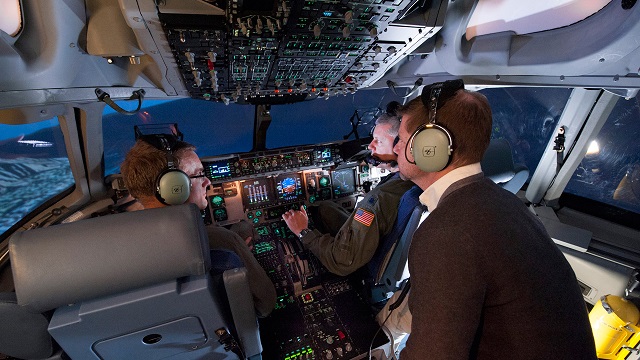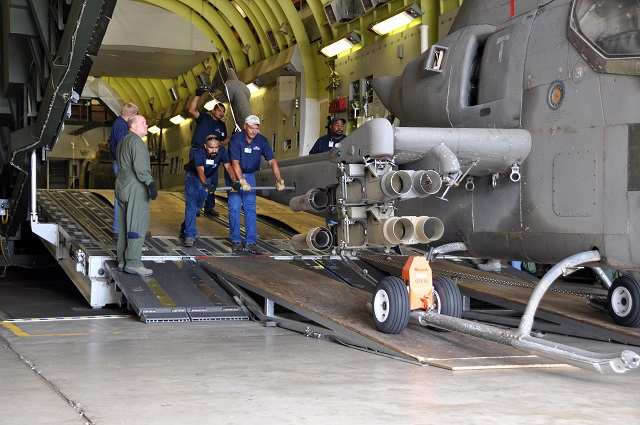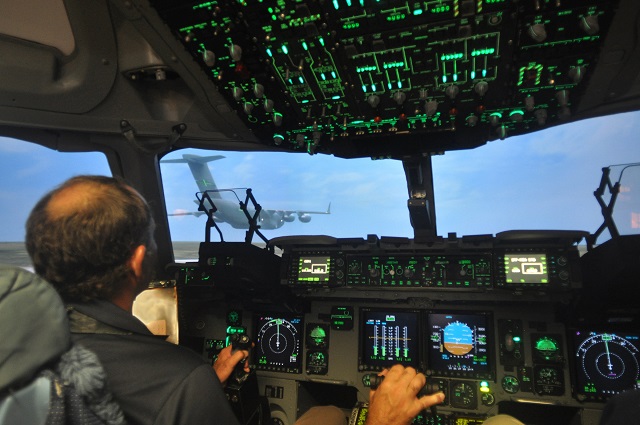Boeing’s defence business is mounting a campaign to recapture the US Air Force C-17 aircrew and maintenance training contract that it conceded to L-3 Link Simulation and Training in 2010.
According to the air force, the five-year contract with two one-year option periods is up for renewal in late 2017 and a request for proposals (RFP) for contractor support of its expansive C-17 training enterprise is due out this year.
Boeing C-17 training programme manager Larry Sisco says his unit delivered all 28 of the air force’s “Globemaster III” flight deck simulators via Flight Safety International, and as the original equipment manufacturer of the C-17, Boeing has the inherent expertise to keep those flight and maintenance simulators up-to-date and aligned with the latest aircraft capabilities. His teams intends to compete against L-3 Link and any other training providers vying of the contract.
“We’re still in the business,” Sisco, of Boeing global services and support, tells Flightglobal. “The same competition is rolling back around again and we fully intend to go after that to help the US government get their training centres and systems back up to where we feel they should be.”

Boeing
Sisco expects the C-17 to keep serving in its strategic airlift role through 2060 and the aircrew and maintenance training system will need to be refreshed as those aircraft are updated.
The air force’s oldest weapon system trainer is more than 20 years old, despite having a design life of 15. Boeing had been involved in USAF C-17 training since its inception in 1989, but turned over the contract to L-3, which is now in the “option years” of its seven-year contract.
Sisco says the company has been able to stay relevant through its international C-17 training customers, including the United Arab Emirates, Qatar and the UK as well as a company-owned international training centre established at Farnborough, near London.
Last year, Boeing captured a strategically important $8 million foreign military sales case with the NATO Airlift Management Agency to train C-17 “strategic airlift capability” aircrews at its UK site, Sisco notes. Boeing is also trying to close a training deal with India and is eyeing potential business with C-17 operators Canada and Kuwait.
For its part, L-3 Link recently established the air force’s 15th C-17 schoolhouse, located at Martinsburg Air National Guard Base in West Virginia. The company is also involved in Lockheed Martin F-22, F-16, Northrop Grumman B-2 and Boeing F/A-18 training and simulation as well as with other rotary-wing and unmanned platforms.
USAF says the C-17 training support contract is worth up to $60 million per year, and contracts for B-2 and F-16 training systems are also up for renewal, with solicitations also expected in 2016.

C-17 Load Trainer

C-17 Weapon System Trainer
L-3 Link
Source: FlightGlobal.com























